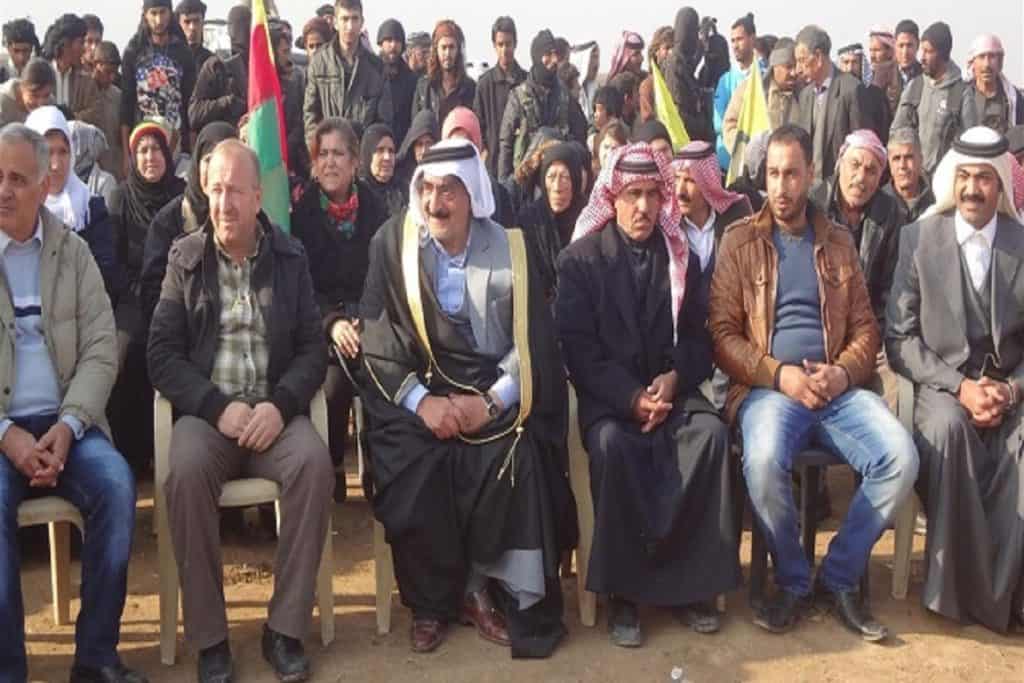By Denis Korkodinov
Riyadh has begun to encrease pressure on tribal groups in Syria. In June 2019, the Saudi Gulf Affairs Minister Tamer Al-Sabhan attended a meeting with leaders of Arab tribes. The meeting was held in the city of Deir ez-Zor and it was aimed to the involvement of Syrian tribal groups in the development of measures to counter the Bashar al-Assad regime.
It is worth noting that the Arab tribal groups constitute about the 20 percent of Syrian total population. They are predominantly represented in eastern Syria. Their control of their territory is divided between the Syrian Democratic Forces “(DF) and the governmental forces controlled by the President Bashar Al-Assad. The most influential tribal groups in this region are Akaidat, Baggara and Bushaban. They have their own sheikhs, who are trying to put forward an own policy, separate from Damascus.
A real struggle has been unfolded between various international players to gain influence on the tribes. The most prominent role is played by Saudi Arabia, Turkey and Iran. However, if Riyadh and Ankara tend to influence local tribal groups in order to counter the Syrian regime, Tehran is trying to use them to preserve the status quo.
Meanwhile, the polarization of interests and mutual hostile relations, have created the conditions for an escalation of the armed conflict. During the period in which Hafez al-Assad was in power, tribal groups represented the backbone of the Syrian regime, as the policy of Damascus was in favour of their development. Meanwhile, the politics of Bashar al-Assad, with especial reference to the elimination of the subsidies for the agricultural products, moved tribal leaders on the side of the local opposition, which turned out to be a decisive factor for the beginning of the Syrian crisis in 2011.
This allowed the Saudis to use their influence on the tribes in order to advance their own interests in Syria. Particularly noteworthy evidence of this policy was the massive emigration of the leaders of the Syrian tribes, who found political asylum in Saudi Arabia at the very beginning of the military conflict.
In turn, Iran also attempted to influence the tribes in Syria. Local sheikhs were often invited to Tehran to participate in various public events. These meetings on Iranian territory were widely covered in the Iranian and Syrian press and presented to the public as the Syrian tribal groups were actively cooperating with the Ayatollah regime and opposing the influence of Riyadh. Specially, Tehran made an exceptional bet on the Tay and Sheytat tribes, from whose representatives militia groups were formed, acting on the side of Bashar al-Assad.
Ankara is trying to use the Syrian tribes in the hope that they could become a decisive force in the fight against the Kurds, settled in the region. This, in particular, was the aim of a meeting organized in February 2018, in the city of Urfa, between Turkish President Recep Erdogan and the sheikhs, who supported the Turkish operation “Olive Branch” and declared their loyalty to Ankara.
However, the policy actively exerted by the countries of the Middle East and the Persian Gulf to exert pressure on the Syrian tribes could lead to another wave of civil war. Most tribes were artificially divided into warring factions only for the facts that they were separated by the Euphrates River.
Such a critical situation does not contribute to stability in the Arab world, but only increases polarization between different clans. In order to avoid this, Saudi Arabia, Iran and Turkey should support initiatives that would be aimed at forming a common national identity of the Arabs. But until that happens, the Arab tribes inside Syria will be a bargaining chip in the Middle Eastern game.
(The views expressed in this article belong only to the author and do not necessarily reflect the views of World Geostrategic Insights)
Image Credit: LSE/Ronahi







